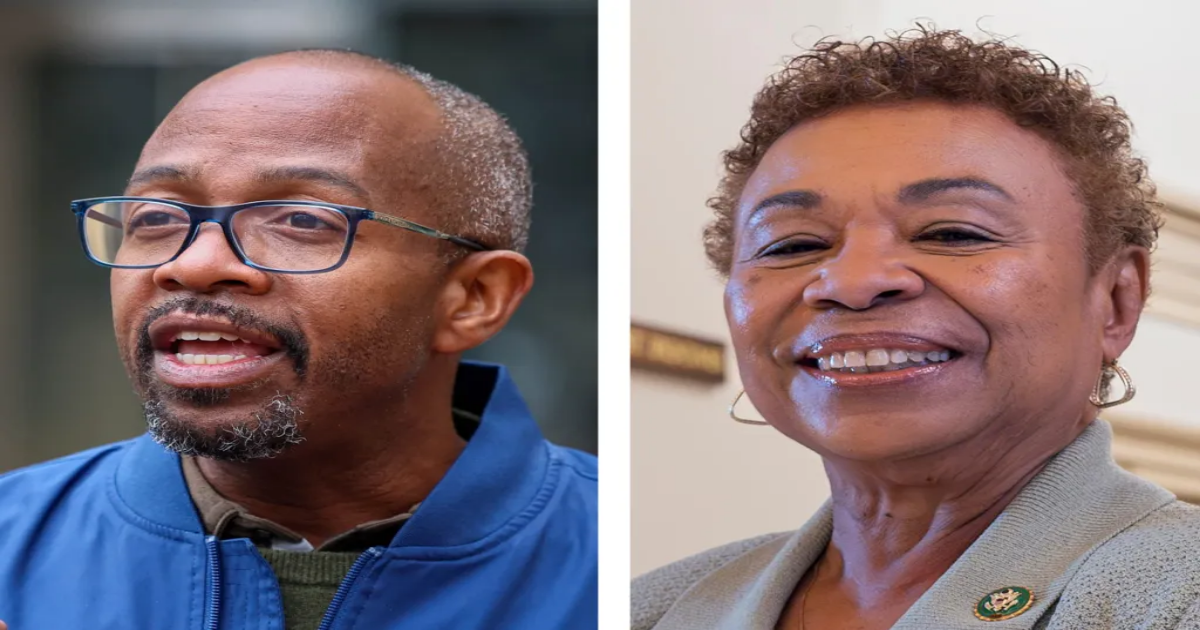OAKLAND — Barbara Lee, the retired congresswoman seen by supporters as a stabilizing force for a city in a crisis of leadership, has been elected Oakland’s next mayor over former Councilmember Loren Taylor, the latest results released Friday show.
Lee held a 52.6% to 47.3% over Taylor in ranked-choice results, a difference of nearly 5,000 votes, in the new returns. She has a little over 50% of first-place votes to Taylor’s 45% — a majority that would give her the win outright, without an instant runoff, if it held in the final election results.
“This evening’s results are encouraging,” Lee said in a campaign statement Friday. “I decided to run for mayor knowing that Oakland is a deeply divided city — and I ran to unite our community.”
Charlene Wang emerged victorious in a race for an Oakland City Council seat, leading runner-up Kara Murray-Badal 59% to 40% in ranked-choice results. She will represent District 2, which spans Chinatown, Jack London Square and areas near Lake Merritt, including the Eastlake and San Antonio neighborhood.
Voters also approved by 65% a sales tax measure intended to ease the city’s budget crisis.
Alameda County election officials said Tuesday they had counted all ballots on hand. More are expected to arrive by mail over the weekend, but county Registrar of Voters Tim Dupuis said his office received only 90 new ballots on Friday.
The county also needs to cure about 300 ballots that were improperly filed before arriving to the elections office.
The number of outstanding ballots does not appear to be enough for Taylor to overcome his deficit against Lee, who will now lead a city that faced a leadership vacuum following the removal of ex-Mayor Sheng Thao last November.
Lee’s political star power made her the early favorite, but she faced a formidable challenge from Taylor, who took an early lead on election night — just as he did before losing to Thao in the 2022 election.
Ahead of Friday’s results, Taylor’s campaign released a statement thanking his supporters for “standing with us, for showing up, and for reminding us what’s possible when we do this together.” Taylor and his campaign officials did not immediately return phone calls Friday evening from this news organization.
Taylor and Lee were widely seen as frontrunners in the 10-candidate race. Only one other candidate besides them had received 1% of the vote after Friday’s returns. If ranked-choice vote transfers factor into the final results, they are likely to favor Lee, who has held the advantage since election night.
The mayoral race carried high stakes, with hundreds of thousands of dollars spent by labor unions backing Lee and by wealthy tech and finance executives supporting Taylor.
Taylor made clear his intent to run again for mayor well before Thao’s recall election in November, while rumors of Lee’s candidacy began swirling even before the ex-mayor’s removal became official in December.
The hype around the former congresswoman was so strong that several prospective candidates dropped out of consideration as soon as she entered the race. Taylor, though, steadily continued campaigning — a momentum reflected in pre-election polls that indicated the race was tight.
On the campaign trail, Lee pledged to unify labor and business in a city that grew deeply divided during Thao’s tenure, while Taylor vowed to take a wrecking ball to a city government that he described as fundamentally broken.
Each tried to depict the other as the establishment choice, with Lee picking up widespread political endorsements as she returned to being a full-time Oakland resident after 26 years legislating in Washington, D.C.
Lee supporters, in turn, painted Taylor as a “City Hall insider” partially to blame for the city’s perilous budget deficit.
Taylor, who served a four-year council term until 2022, was more keen to mention his background as a business consultant and biomedical engineer. He did not shy away from his alliances in the tech world, which has recently begun spending big on Bay Area elections.
Lee and Taylor did not disagree on many specific city policies, besides whether layoffs would be an option to resolve the city’s budget deficit.
There was, however, a clear divide in where the candidates’ respective voters live.
Lee is leading in precincts across West Oakland, the city’s downtown and the large swath of town east of Lake Merritt — all the way across the flatlands to the San Leandro border.
Taylor’s support was much more concentrated in the Oakland hills, where typically wealthier and more politically moderate communities see far higher voter turnout than in lower-income neighborhoods.
Shomik Mukherjee is a reporter covering Oakland. Call or text him at 510-905-5495 or email him at [email protected].
Originally Published: April 18, 2025 at 5:21 PM PDT



